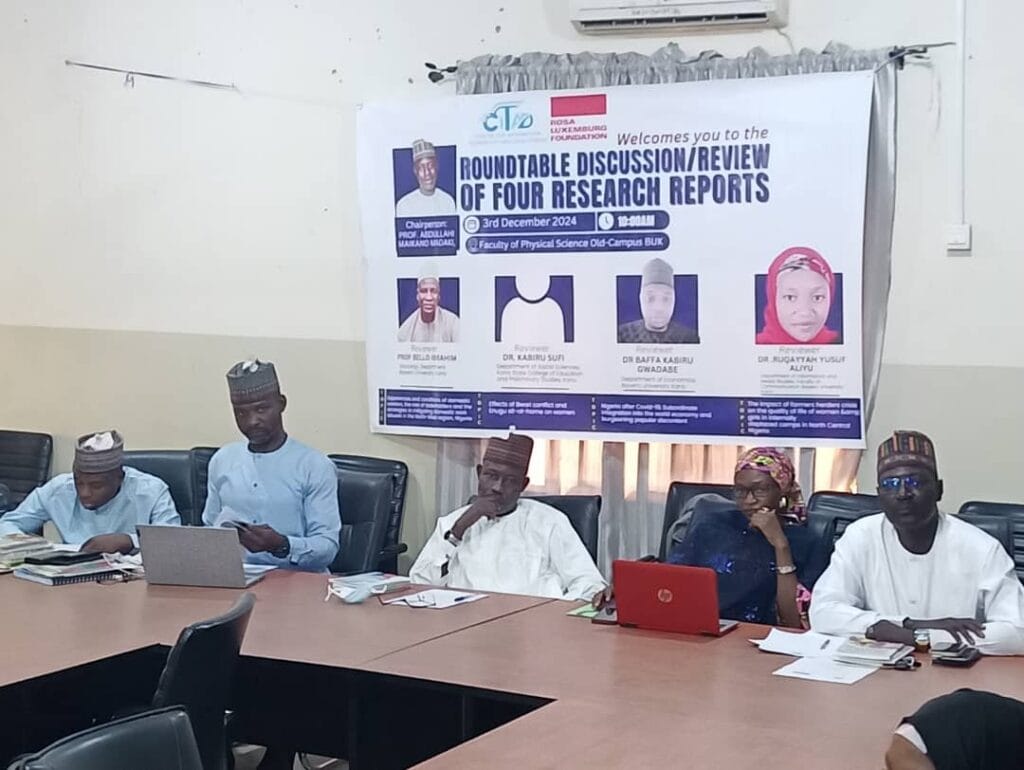The Centre for Information Technology and Development (CITAD) organized a round table discussion to review four research documents on domestic work conditions, the effects of conflicts on women, post-COVID-19 challenges and the lives of women in IDP camps.
The event held at Bayero University Kano, aims to promote intellectual engagement by reviewing research documents presented by academics.
The session featured four speakers: Prof. Bello Ibrahim, Dr. Kabiru Sufi, Dr. Baffa Kabiru Gwadabe, and Dr. Ruqayyah Yusuf Aliyu.
Each speaker provided analysis and corrections on one of the four research papers presented.
The first paper examined domestic work conditions in Northwest Nigeria, focusing on issues such as abuse and the involvement of stakeholders.
The second document discussed the effects of conflict and restrictions on women in Bwari and Enugu.
The third explored Nigeria’s economic challenges post-COVID-19, while the fourth addressed the impact of the farmers-herders crisis on the lives of women and girls in internally displaced persons (IDP) camps.
Prof. Bello Ibrahim, represented by Dr. Hassan Ahmad Hassan, reviewed the document on “Experiences and conditions of domestic workers in Northern Nigeria.”
He highlighted human rights abuses, including physical, psychological, and sexual abuse, and offered corrections on errors and gaps in the research.
Dr. Kabiru Sufi discussed “The effects of Bwari conflict and Enugu sit-at-home on women,” providing insights into the origins of the Bwari conflict, how it was controlled, and the impact of the sit-at-home order on women in Enugu.
Dr. Baffa Kabiru Gwadabe analyzed the economic situation in Nigeria following the COVID-19 pandemic, emphasizing the challenges faced by the country. He also provided corrections to the document.
Dr. Ruqayyah Yusuf Aliyu concluded the session with a detailed review of “The impact of farmers-herders crises on the quality of life for women and girls in IDP camps in North Central Nigeria.”
Participants engaged actively with the speakers, particularly on the topic of domestic workers’ conditions.
The session chairperson, Prof. Abdullahi Maikano Madaki, noted that, aside from physical abuse, issues such as health abuse, cleanliness, and hygiene were also significant concerns.
The roundtable highlighted the importance of the reviewed research and identified areas where the researchers could improve. Organizers indicated plans to continue fostering intellectual discourse and knowledge-sharing.
Paradigm News reports that, the roundtable was organized by CITAD in collaboration with the Rosa Luxemburg Foundation (RLF).





